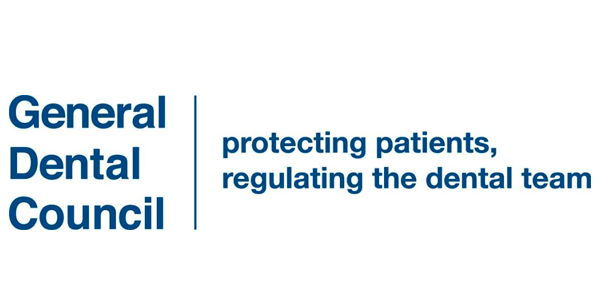Dentures have long been a reliable solution for individuals with missing teeth, helping to restore not only the appearance of a full smile but also the function and comfort of a natural set of teeth. Whether you’re considering dentures for yourself or a loved one, understanding the different types and benefits can help you make an informed decision. In this article, we’ll take you through everything you need to know about dentures.
What Are Dentures?
Dentures are removable appliances designed to replace missing teeth and the surrounding gum tissue. They can be used to replace all or some of your teeth, depending on your individual needs. Made from materials such as acrylic, nylon, or metal, modern dentures are more comfortable, natural-looking, and functional than ever before.
Types of Dentures
There are several types of dentures available, each designed to meet different needs:
1. Full Dentures (Complete Dentures)
Full dentures are used when all of a patient’s teeth are missing in either the upper or lower jaw. They sit on top of the gums and are custom-made to fit the shape of your mouth. Full dentures can improve the appearance of your smile, restore chewing ability, and support facial muscles that may sag when teeth are missing.
2. Partial Dentures
Partial dentures are used when some natural teeth remain in the upper or lower jaw. They consist of replacement teeth attached to a gum-coloured base, often held in place with metal clasps that attach to your natural teeth. Partial dentures help fill in gaps and prevent your remaining teeth from shifting out of position.
3. Immediate Dentures
Immediate dentures are placed right after tooth extraction, allowing you to avoid being without teeth during the healing process. These dentures may need to be adjusted as your gums heal and shrink, and are often seen as a temporary solution until a more permanent set can be made.
4. Implant-Supported Dentures
Implant-supported dentures are a more permanent option that uses dental implants as a foundation for securing the dentures in place. This type of denture offers superior stability and prevents slipping, making it easier to eat, speak, and smile confidently.
5. Flexible Dentures
Flexible dentures are made from softer materials than traditional dentures, offering more comfort and flexibility. They are less likely to break and can be a good option for patients with sensitive gums or those who experience discomfort with rigid materials.
Benefits of Dentures
Dentures offer a range of benefits, from improving oral function to enhancing your overall appearance:
1. Restored Chewing and Speaking Ability
Missing teeth can make eating and speaking difficult. Dentures restore your ability to chew food properly, improving digestion and nutrition. They also support your lips and cheeks, helping you speak more clearly.
2. Improved Aesthetics
Dentures are designed to look natural, filling in gaps where teeth are missing and giving you a full, healthy smile. They can also help restore facial volume, which is often lost when teeth are missing, reducing the sunken look that can occur as we age.
3. Preventing Further Dental Issues
When teeth are missing, the surrounding teeth can shift out of place, leading to bite problems and even jaw pain. Dentures help maintain the alignment of your remaining teeth and provide support for the jaw.
4. Cost-Effective Solution
Dentures are generally more affordable than other tooth replacement options like dental implants or bridges. They provide a practical solution for individuals who may not be candidates for surgery or those who want a more budget-friendly option.
5. Customisable and Easy to Maintain
Modern dentures are custom-made to fit your mouth, ensuring a comfortable and secure fit. They can be removed for cleaning, making it easier to maintain good oral hygiene.
What to Expect When Getting Dentures
Getting dentures is a multi-step process that involves several visits to your dentist or prosthodontist. Here’s what you can expect:
1. Initial Consultation
During your first visit, your dentist will examine your mouth, discuss your needs, and recommend the most suitable type of dentures. Impressions of your mouth will be taken to create a model for your custom dentures.
2. Fitting and Adjustments
Once your dentures are ready, you’ll return for a fitting. The dentist will make any necessary adjustments to ensure your dentures fit comfortably and securely. It’s normal to experience some discomfort or soreness at first, but this should improve as your mouth adjusts.
3. Caring for Your Dentures
Dentures require proper care to stay in good condition. You’ll need to clean them daily by brushing with a soft denture brush and soaking them in a denture-cleaning solution. Avoid using regular toothpaste, as it can be too abrasive. It’s also important to keep your gums and remaining teeth clean to prevent infections or further dental problems.
Are Dentures Right for You?
Dentures can be a great solution for many individuals, but they’re not the only option available. Your dentist will assess your oral health and discuss whether dentures, dental implants, or another treatment is the best fit for your needs. Factors such as the number of missing teeth, bone density, and overall oral health will all play a role in determining the most suitable treatment.
Conclusion
Dentures are a tried-and-tested option for restoring the appearance and function of your smile. With the variety of denture types available today, there’s a solution for every individual’s needs. If you’re considering dentures or want to explore other tooth replacement options, schedule a consultation with us at Ewan Bramley Dental Care. Our team of experienced dental professionals can help guide you to the best solution for your oral health and lifestyle.






